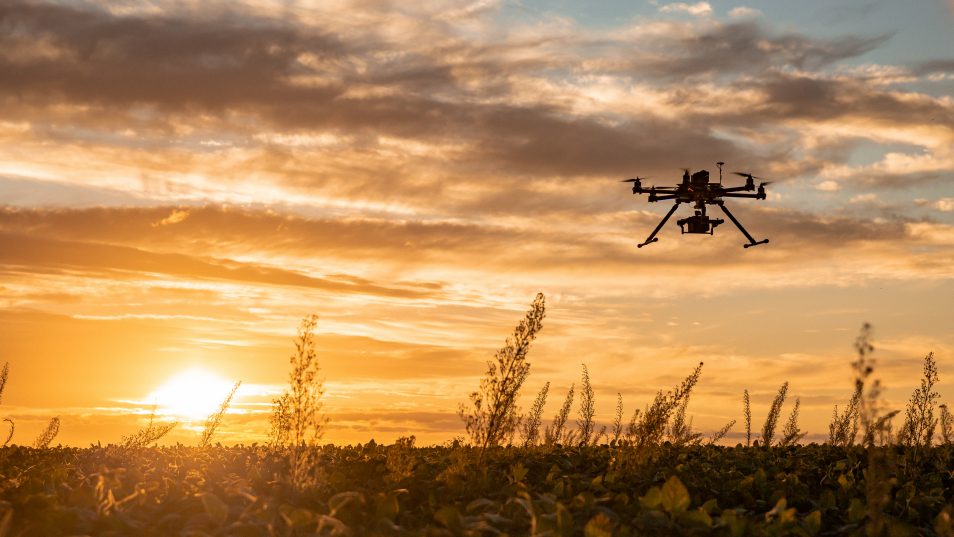Sustainable Artificial Intelligence!
 © iStock
© iStock
Artificial Intelligence (AI) has become an integral part of our lives. Search engines, language translators, customer portals, diagnostic systems, manufacturing robots… the list of AI applications is long, but only at the beginning. No technological innovation has developed as rapidly as this branch of information technology in the last ten years. But can AI save our planet?
AI is first and foremost a tool – created to recognize patterns in complex data, learn from this data, and use this knowledge to achieve specific goals through flexible adaptation. AI holds risks but also opportunities for environmental protection and the transformation of our society towards ecological, social, and economic sustainability.
In view of the continuing increase in the performance of computer systems and disruptive innovations, applications of AI will emerge in the coming decades that we can only guess today at best. Reinforced by the COVID-19 crisis, in the existential sense of global trends towards more resilience and against the background of finite resources, it is essential to use the “tool AI” as effectively as possible in the future to protect the environment and climate.
The German Research Center for Artificial Intelligence (DFKI) has a proven track record in application-oriented basic research in information and communication technologies. It focuses on humans and is committed to the European path of responsible AI. And it is precisely this AI, especially when one thinks of the international climate targets or the European Green Deal, that must be developed and deployed in such a way that it serves humanity in the sense of sustainable action. Against this background, DFKI founded its Competence Center AI for Environment and Sustainability (DFKI4planet) to develop cyber-environmental systems and to contribute to ecological sustainability.
About the German Research Center for Artificial Intelligence (DFKI)
The DFKI is a non-profit, Public-Private-Partnership since 1988. It combines scientific excellence and commercially oriented value creation with social awareness and is recognized as a major Center of Excellence by the international scientific community.
The Competence Center DFKI4planet bundles DFKI’s expert knowledge and activities in ecological sustainability in various fields of application such as Industry 4.0, circular economy, agriculture and forestry, marine science and maritime technologies, retail, economics and language technology. In this context, sustainable AI solutions for climate and the environment are just as relevant, as sustainability within an aspired green AI itself. It serves as a central contact point for researchers, organisations and promotes exchange with politics, and the public.
Applications and projects developed at DFKI that are fighting against challenges to attain sustainability with AI.
Satellite images are analysed using deep learning methods and enriched with extracted data from social media. The aim is to capture the effects of natural disasters and support emergency forces with time-critical information.
Plastic Waste Collection Project
The DFKI uses AI-supported multispectral image data of drone flights from Cambodia, the Philippines, and Indonesia. By using a two-step approach of artificial neural networks two insights can be determined: the amount of waste and its composition. The former is relevant for efficient waste disposal, while the detailed information on individual waste components helps local authorities to identify the sources of plastic waste and to initiate counter measures.
The project for waste and recycling management is funded by the German Federal Ministry of the Environment. It aims to improve the recycling of plastics by means of AI and a digital product passport. The latter should make it possible to make the entire recycling chain of a complex product, such as a coffee machine, transparent. In addition, machine learning algorithms will help to sort waste by type.
Advancing Agricultural Systems
The combination of ecological and economic sustainability will also determine the agricultural systems of the future. The Digital Knowledge and Information System for Agriculture (DAKIS) aims to add value to ecosystem services and resolve conflicts of interest in land management. Digital decision support systems as well as diversified land management, including the use of field robots controlled by intelligent algorithms from the DFKI research department “Plan-based robot control”, serve this purpose.

AuthorProf. Dr. Oliver Zielinski
Prof. Dr. Zielinski is head of the research department Marine Perception at the DFKI and leads the Competence Center AI for the Environment and Sustainability, DFKI4planet. His research covers the environmental physics of aquatic ecosystems. His particular focus lies in combining environmental research with intelligent technologies, especially in the field of autonomous sensor systems and marine observatories.
